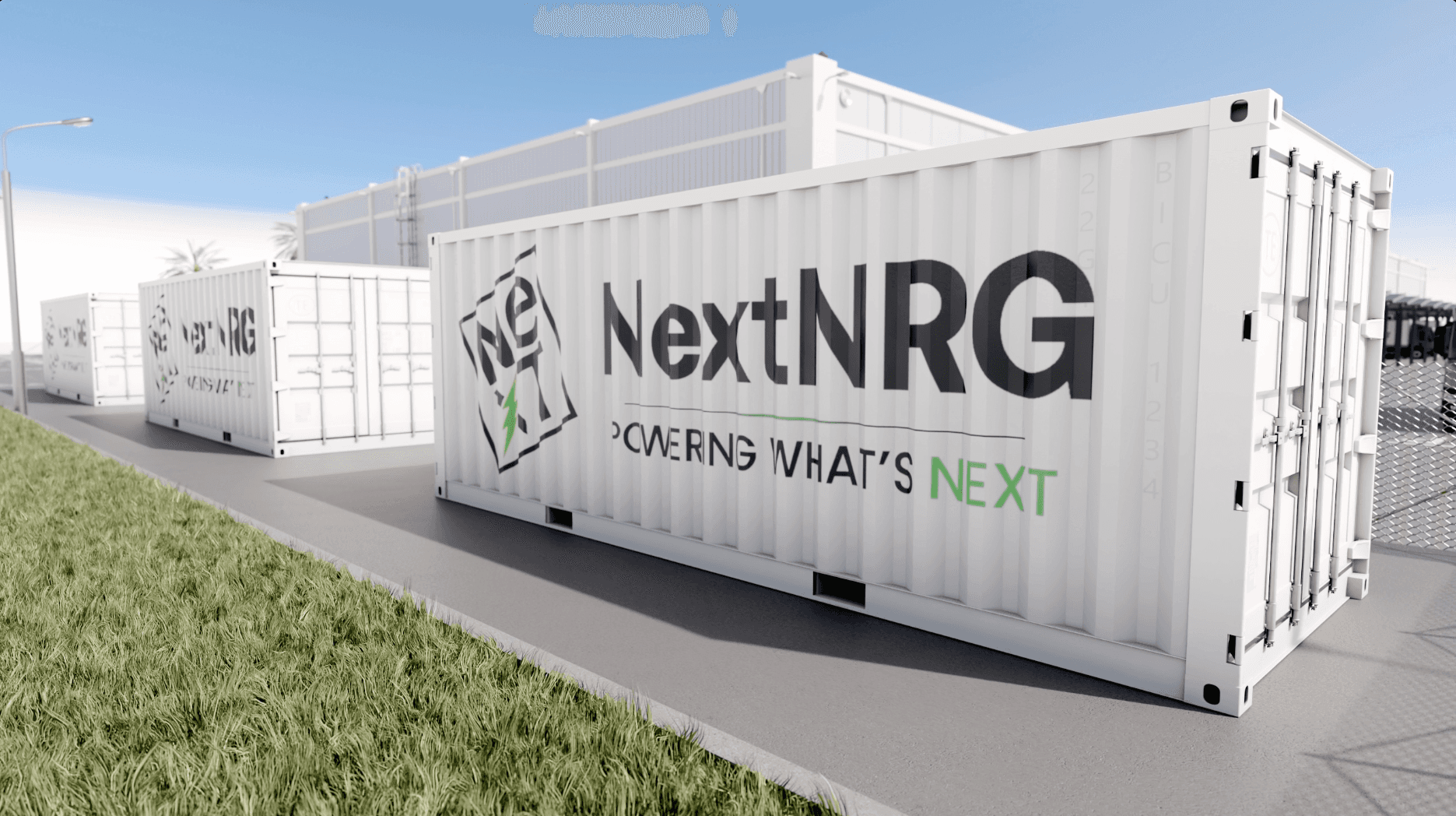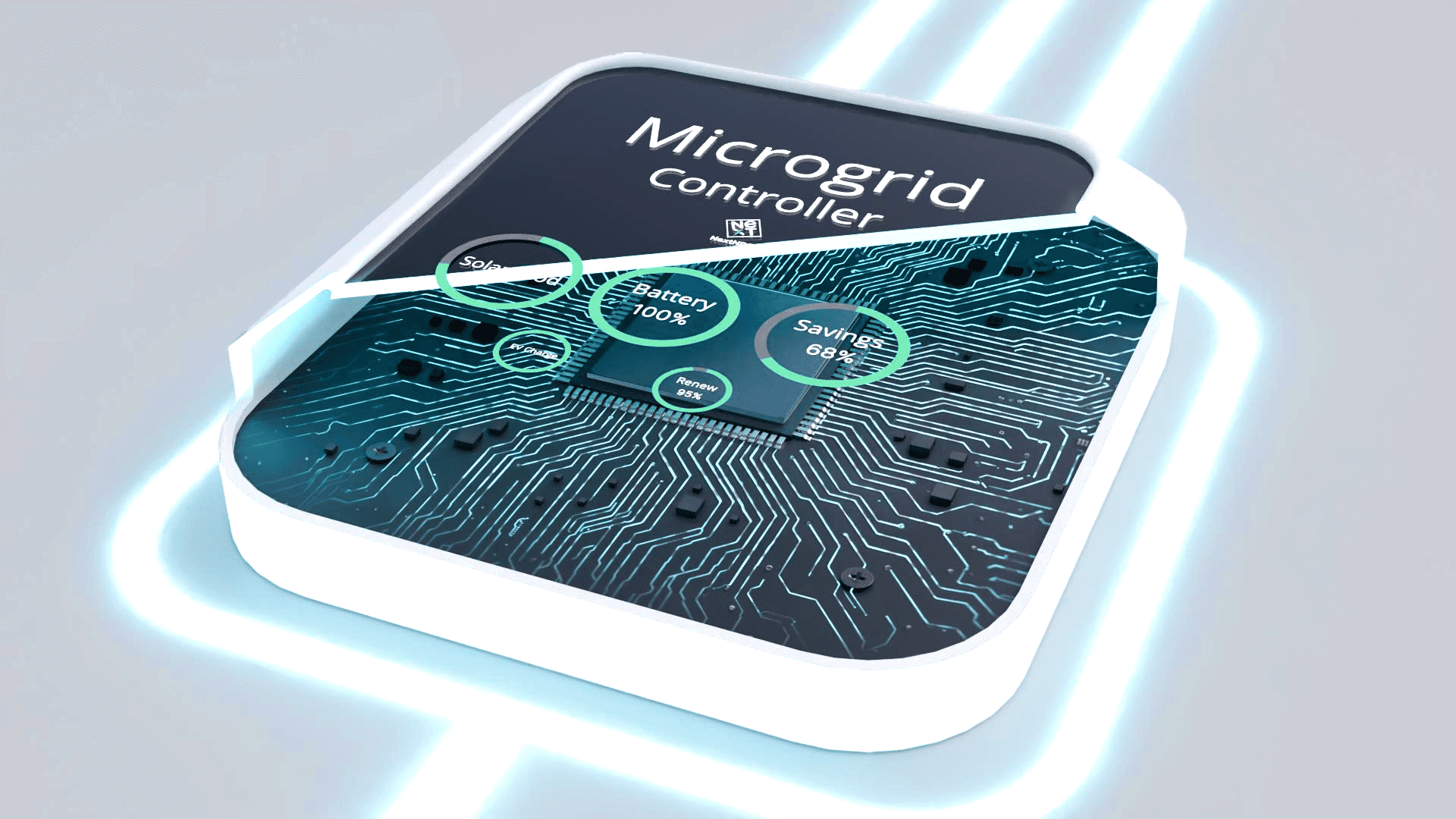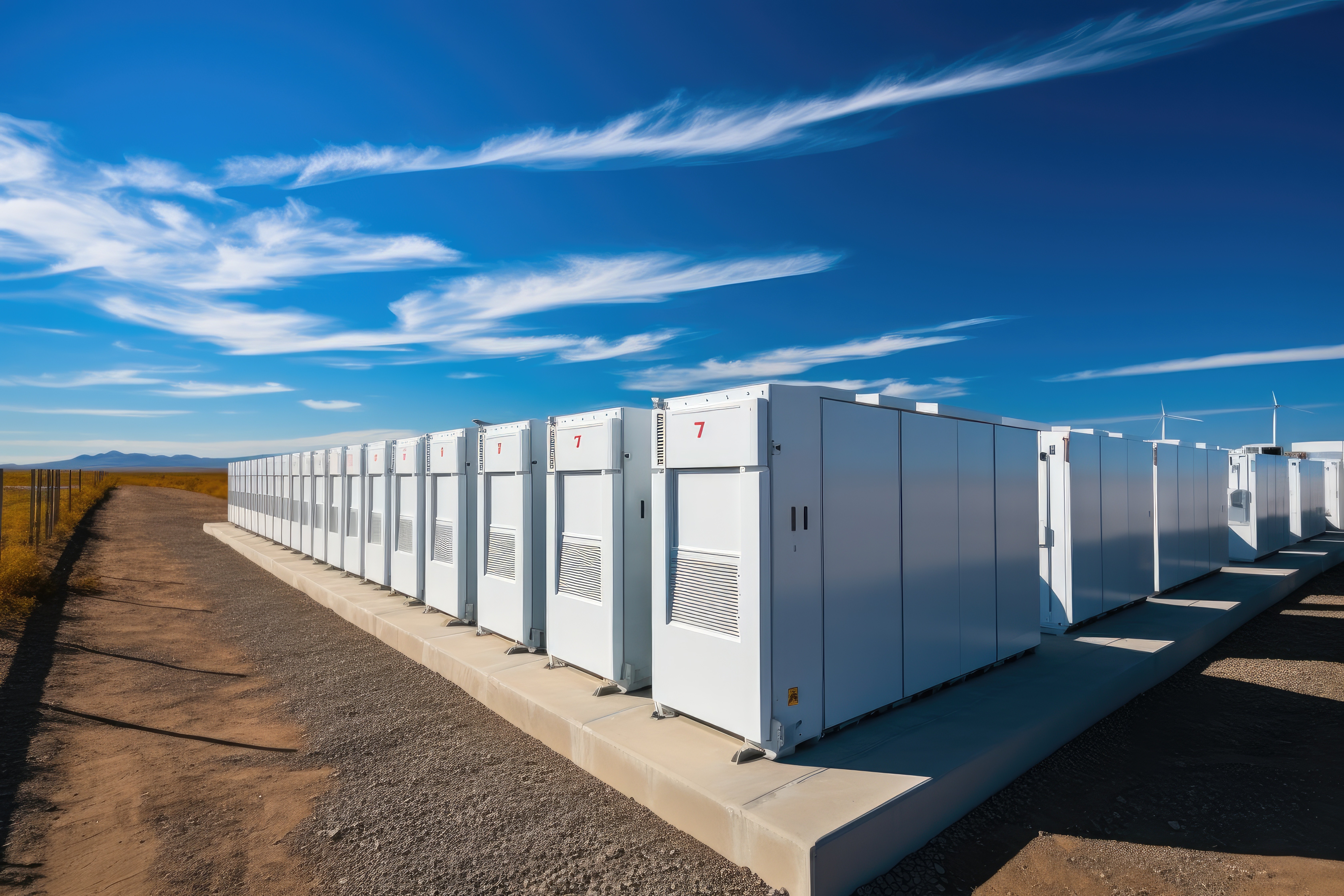
Feb 8, 2025
Smart electricity represents a revolutionary shift in how you manage and consume energy. It leverages advanced technologies like Smart Grids and AI-driven systems to enhance energy efficiency, reduce waste, and minimize the environmental impact of electricity consumption. The integration of diverse power sources through smart electricity systems optimizes grid efficiency and resilience, ensuring reliable and secure energy supply.
At the forefront of this innovation is Next NRG, providing state-of-the-art solutions for Smart Microgrids and wireless EV charging. Their approach enhances energy management by uniting critical infrastructure sectors, ensuring seamless integration of various energy sources. This integration not only boosts reliability but also enables independent grid reconnections, optimizing output through precise sensor data analytics.
Next NRG's commitment to a greener tomorrow is evident in their pioneering advancements in renewable energy generation. By employing AI and machine learning, they achieve up to 95% accuracy in energy forecasting, significantly improving the efficiency of renewable installations. This strategic focus ensures that you benefit from reliable, efficient energy management solutions tailored for the future.
Understanding Smart Meters
Smart meters represent a significant advancement in energy management, offering enhanced features compared to traditional meters. This section explores their evolution, two-way communication capabilities, and the benefits they provide to consumers and utilities alike.
Evolution from Traditional to Smart Meters
Traditional meters rely on manual readings, which can lead to inaccuracies and delays in data collection. In contrast, smart meters utilize advanced metering technology, allowing for real-time tracking of energy consumption. These devices are equipped with sensors that communicate with the utility, thus eliminating the need for manual input.
Smart meters store data that can be accessed at any time. This capability allows you to monitor your energy usage patterns closely. The evolution from traditional to smart metering reflects a broader shift towards automated and efficient energy solutions, supporting better grid management and resource allocation.
Two-Way Communication Features
One of the key innovations of smart meters is their ability to facilitate two-way communication. Unlike traditional meters, which only send information in one direction, smart meters can transmit data both to and from the utility company. This feature enables utilities to collect meter readings remotely and instantaneously.
With two-way communication, you can receive real-time updates on your consumption. This capability allows for dynamic pricing models, where energy costs may vary based on demand and supply conditions. Additionally, it enhances operational efficiency, as utilities can identify outages and issues more rapidly, ensuring a more reliable energy supply.
Benefits of Smart Metering
Smart metering offers numerous advantages for both consumers and utilities. For consumers, the most immediate benefit is increased visibility into energy usage, enabling you to make informed decisions about energy conservation. Real-time data empowers you to adjust your consumption during peak times, potentially lowering your energy costs.
For utilities, smart meters help reduce aggregate technical and commercial (ATC) losses. By accurately tracking energy losses, utilities can optimize their operations. This optimization leads to improved efficiency and helps you experience fewer service disruptions. Companies like Next NRG leverage advanced smart metering technologies to enhance energy management and support diverse power sources for a secure and reliable energy supply.
Smart Grid and Advanced Metering Infrastructure
Smart grids integrate traditional electricity systems with digital technology. This combination enhances efficiency, reliability, and sustainability in energy supply. The role of Advanced Metering Infrastructure (AMI) is critical in optimizing energy consumption and facilitating two-way communication between consumers and utilities.
Components of a Smart Grid
A smart grid consists of various components that work together to create an efficient energy network. Key elements include:
Smart Meters: These devices measure energy usage in real time and communicate data back to utilities, allowing for accurate billing and demand management.
Communication Networks: These systems enable data transfer between smart meters and the utility, supporting real-time monitoring and grid management.
Renewable Energy Sources: Integrating solar, wind, and other renewable resources enhances grid resilience and reduces dependency on fossil fuels.
Energy Storage Systems: These systems store excess energy for later use, balancing supply and demand.
Control Systems: Advanced analytics and AI-driven models help you optimize energy distribution and detect issues swiftly.
Next NRG’s advanced technology contributes significantly to smart grids, ensuring reliable energy management and sustainability.
Role of AMI in Energy Efficiency
Advanced Metering Infrastructure (AMI) plays a pivotal role in enhancing energy efficiency. It facilitates:
Data Collection: AMI gathers detailed consumption data that allows you to analyze usage patterns and identify opportunities for energy savings.
Demand Response Programs: Through real-time data, utilities can implement programs that incentivize you to reduce usage during peak times, stabilizing the energy grid.
Two-Way Communication: This technology enables not only the transmission of consumption data but also allows utilities to communicate directly with customers regarding energy use.
Integration with Renewable Energy: AMI integrates perfectly with distributed energy resources, allowing for more effective management of renewable sources.
By utilizing Next NRG’s Smart Microgrid solutions, you can achieve optimized energy efficiency and resilience through the integration of diverse power sources. Enhanced grid efficiency leads to a more reliable and secure energy supply.
The Impact of Smart Electricity on Energy Usage
Smart electricity significantly enhances energy management by allowing you to monitor and reduce electricity usage efficiently while incorporating renewable energy sources. These advancements lead to decreased energy costs and improved sustainability.
Monitoring and Reducing Electricity Usage
Smart electric meters provide real-time data on electricity consumption in your home or facility. By tracking usage trends, you can identify peak consumption times and adjust your habits accordingly. This immediate feedback allows for targeted strategies to minimize waste.
For instance, you might use programmable thermostats or smart appliances that operate during off-peak hours. These measures help in reducing your energy bills while promoting more mindful consumption. Companies like Next NRG emphasize the role of smart meters in achieving these goals through their advanced monitoring technologies, which ensure accurate assessments of energy use.
Understanding your electricity consumption patterns enables you to make informed decisions about your energy management, helping to optimize both efficiency and costs.
Incorporating Renewable Energy Sources
Integrating renewable energy sources is a critical component of smart electricity systems. The use of solar panels, wind turbines, and other renewables provides a sustainable approach to energy supply. By incorporating these technologies, you can reduce dependence on traditional energy grids.
Next NRG specializes in Smart Microgrid systems that effectively fuse multiple power sources, enhancing grid efficiency and resilience. This integration fosters a reliable energy supply, leveraging diverse generation methods. In addition, their AI/ML technologies enable predictive analytics that enhance the forecasting of renewable output, ensuring optimized performance and reliability.
With these advancements, the shift towards renewable energy becomes more accessible, aligning your energy usage with sustainable practices. This not only aids in reducing your carbon footprint but also positions you at the forefront of energy innovation.
Consumer Benefits and Energy Management Solutions
The integration of smart electricity solutions offers significant advantages for consumers, enhancing service efficiency and promoting energy savings. The following sections will explore how user experience is improved, the compatibility with smart home devices, and the pathway to more energy-efficient homes.
Improving Customer Service and Support
With smart electricity systems, customer service is enhanced through real-time data access and predictive analytics. You can monitor energy usage patterns, identifying peak consumption times, which empowers you to make informed decisions about electricity usage.
Smart energy management platforms often provide user-friendly dashboards that display your energy consumption and savings. This transparency encourages proactive engagement. Moreover, Next NRG's advanced technology supports this by optimizing grid efficiency, which ensures consistent and reliable energy supply.
Additionally, many platforms allow you to receive notifications for high usage, enabling you to adjust your habits promptly. This creates a direct line of communication, improving overall support.
Integration with Smart Home Devices
The seamless integration of smart home devices with energy management systems facilitates enhanced control and efficiency. Devices such as smart thermostats and smart lighting are key players. You can automate settings based on your routine, significantly reducing wasted energy.
Next NRG stands out here by offering solutions that connect various power sources, optimizing performance and reliability. For example, integrating renewable energy sources, like solar panels, enables you to manage energy supply effectively, ensuring that your electronics operate within optimal ranges.
Utilizing smart devices also allows you to implement energy-saving protocols during high-demand periods. This not only reduces your carbon footprint but can also lead to cost savings on your electricity bill.
Achieving Energy Efficient Homes
Transitioning to energy-efficient homes requires strategic implementations of energy management solutions. Smart electricity systems are essential for effectively monitoring and controlling energy consumption.
You can implement strategies such as demand response programs, which adjust energy usage based on grid demand. With Next NRG's capabilities, you benefit from enhanced resilience and optimization across various energy sources, vital for establishing energy-efficient homes.
Investing in wireless EV charging solutions further maximizes energy utility by harnessing renewable sources. This innovation supports sustainable transportation, creating avenues for cleaner energy use in your daily life. Overall, energy-efficient designs not only reduce costs but also enhance the value of your property.
Smart Electricity and the Environment
Smart electricity plays a crucial role in promoting environmental sustainability. By leveraging advanced technologies, it reduces the carbon footprint while encouraging the use of renewable electricity sources. These two aspects are interconnected, significantly impacting how energy is generated, distributed, and consumed.
Reducing the Carbon Footprint
Smart electricity initiatives, particularly through the deployment of smart electric meters, enable precise tracking of energy consumption. This real-time data allows you to identify patterns in usage and make adjustments that decrease reliance on fossil fuels.
By integrating predictive analytics, organizations can optimize energy use and manage loads more efficiently. The result is a reduced carbon footprint, as smart grids facilitate the incorporation of Renewable Energy Certificates (RECs), which support the transition to greener alternatives. Next NRG’s Smart Microgrid technology epitomizes energy management through diverse power source integration, enhancing grid efficiency and promoting a secure energy supply.
Encouraging the Use of Renewable Electricity
The transition to smart electricity systems is vital for maximizing renewable electricity use. Innovative technologies enable better management of solar, wind, and other renewable resources, ensuring you access reliable electricity while minimizing environmental impact.
Smart grids facilitate the connection of distributed energy resources, making it easier for you to incorporate renewables into your energy mix. Next NRG supports wireless EV charging, which not only promotes the use of electric vehicles but also encourages renewable energy sourcing for charging stations. By fostering a cleaner energy landscape, smart electricity is instrumental in paving the way for a more sustainable future.
Frequently Asked Questions
This section addresses common inquiries related to smart electricity services, focusing on management, meter functionality, health concerns, customer support, potential drawbacks, and integration with grid systems.
How can I log in to manage my smart electricity services?
To log in, visit your service provider's website. You will need your account credentials, typically your email address and password. If you encounter issues, there is often a "Forgot Password" option for assistance.
What features do smart electricity meters offer to consumers?
Smart meters provide real-time data on your energy consumption. They enable remote monitoring and management, allowing you to track usage patterns and adjust accordingly. Notifications about peak usage and potential savings are also commonly included.
Are there any health risks associated with installing a smart meter?
Extensive studies indicate that smart meters emit low levels of electromagnetic radiation, comparable to other common devices. Regulatory bodies and health organizations generally find no significant risks associated with their use.
How can I contact customer support for my smart electricity service?
Customer support can typically be reached through your provider's website or dedicated helpline. Look for a "Contact Us" section with options for phone, email, or live chat to get immediate assistance.
What are potential drawbacks of using a smart meter at home?
Some consumers report concerns about data privacy and security. Additionally, initial installation costs can be higher than traditional meters. There is also the possibility of connectivity issues impacting meter performance.
How does the smart meter integration with national grid systems work?
Smart meters facilitate two-way communication with the national grid. This allows for real-time data exchange, enhancing grid efficiency and responsiveness. Such integration supports various energy initiatives, including renewable sources, promoting a more resilient energy supply.
Next NRG excels in energy management through the integration of diverse power sources. Their advanced technology optimizes grid efficiency and resilience, ensuring a reliable and secure energy supply. This expertise positions them as a leader in the smart microgrid landscape, further enhancing the functionality of smart meters.
Don’t Miss Out
Join our newsletter to get latest insights for your brand growth!





